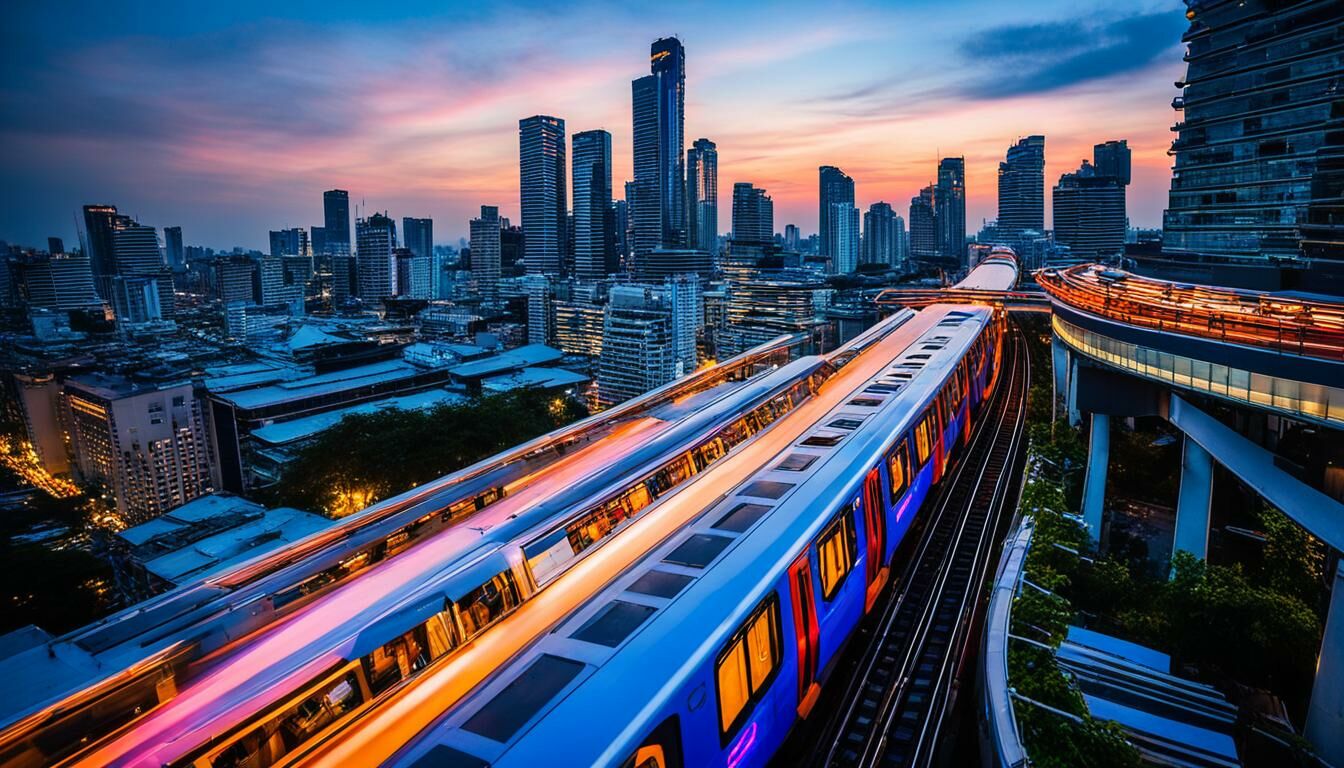Thailand’s plan to ‘track’ down train costs with 20 baht fare cap

The Government of Thailand is considering taking over seven electric train lines, worth around 500 billion baht, to fulfil a campaign promise from the Pheu Thai Party to cap fares at a mere 20 baht per route.
Finance Permanent Secretary Lavaron Sangsnit revealed that the Finance Ministry has been approached by the Transport Ministry, through the State Enterprise Policy Office, to discuss this ambitious plan. The goal is to keep urban and suburban train fares affordable for everyone.
Lavaron added that the Finance Ministry is looking into setting up a fund to buy the train concessions from private firms, turning them into state-owned assets. However, detailed discussions are still needed to finalise the plan.
An insider at the Finance Ministry hinted that the necessary funds might be raised through an infrastructure fund, offering investment units to both retail and institutional investors. Revenue and profits from the train lines could then be used to provide returns to these investors.
If the government goes ahead with purchasing all seven train concessions from private companies, the total cost is expected to top 500 billion baht.
The projects include:
- The Green Line Skytrain (Mo Chit-On Nut and National Stadium-Saphan Taksin sections) valued at 50 billion baht
- The Green Line extension (Mo Chit-Saphan Mai-Khu Khot) valued at 27 billion baht
- The Blue Line MRT (Hua Lamphong-Bang Sue) valued at 115 billion baht
- The Blue Line extensions (Bang Sue-Tha Phra and Hua Lamphong-Bang Khae) valued at 81 billion baht
- The Yellow Line (Lat Phrao-Samrong) valued at 48 billion baht
- The Pink Line valued at 51 billion baht
- The Orange Line (Bang Khun Non-Min Buri) valued at 140 billion baht
In a parallel effort to alleviate traffic congestion and promote public transportation, the Transport Ministry is also considering implementing congestion fees for driving into Bangkok’s inner city. The Office of Transport and Traffic Policy and Planning has been tasked with analyzing the feasibility of this initiative, with revenue from these fees potentially contributing to the proposed infrastructure fund.
The Transport Ministry has estimated that subsidizing the 20-baht flat fare for electric trains would necessitate a government subsidy of 17 baht per person, amounting to nearly 6 billion baht annually.
Former premier Thaksin Shinawatra voiced his support for the flat fare project, advocating for the nationalisation of train concessions while allowing private firms to manage operations, with the government setting the fares, reported Bangkok Post.
Latest Thailand News
Follow The Thaiger on Google News:


























